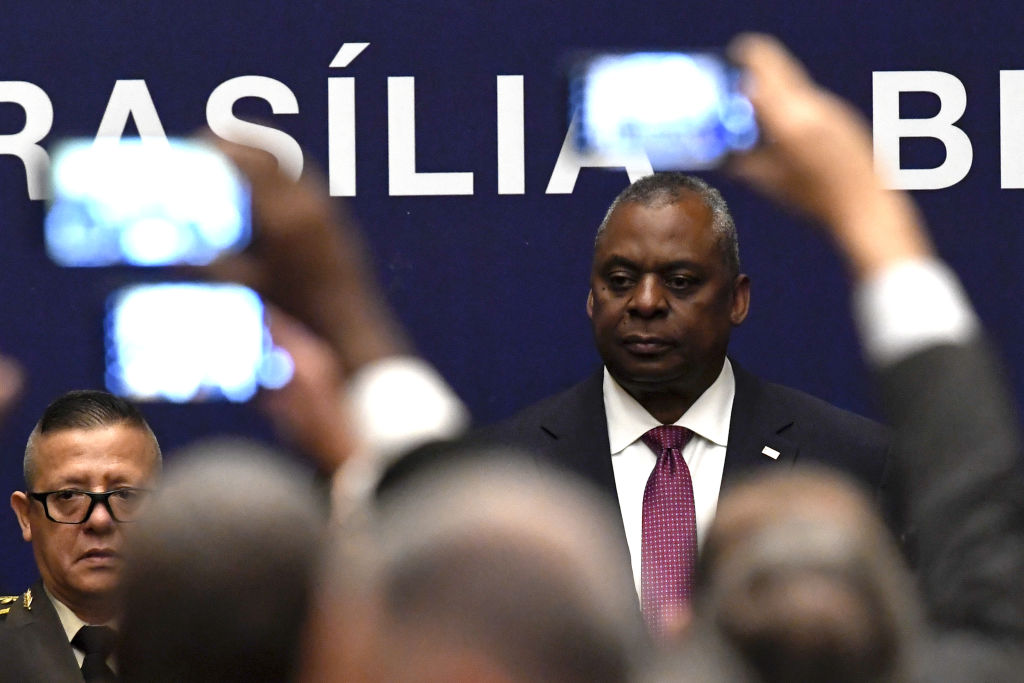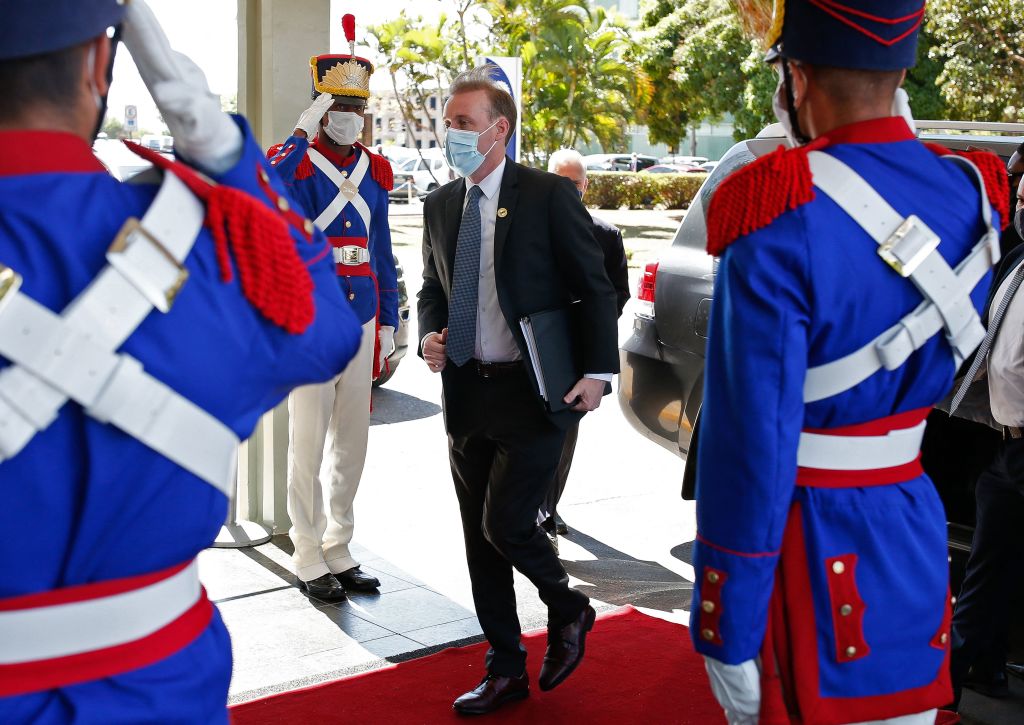Brazil’s upcoming presidential election on October 2 is not taking place in an international vacuum. To paraphrase an old saying, never entirely accurate, Brazil is not just a “country of the future.” Seismic shifts taking place around the world are placing its current importance in stark relief.
Brazil is emerging as a central actor in global food and energy supply chains, on climate change, in multilateral and regional organizations, and on engagement with China in the Western Hemisphere. Brazil could certainly be more of a partner to the U.S. in addressing these issues. The bilateral relationship, however, has rarely been particularly strategic for either country. Making it more so in the context of the changing international landscape is the challenge.
The future of bilateral ties rests not only on how Washington engages with Brazil, but also on a successful democratic outcome to upcoming elections and the priorities of the next Brazilian government. The contentious campaign is certainly raising concerns internationally and within Brazil about whether the incumbent, President Jair Bolsonaro, will accept a result where his main rival, former President Luiz Inácio Lula da Silva, is declared the victor. But if the door opens to a more dynamic relationship—regardless of who wins—both countries will have a rare opportunity to work together at a critical moment for the hemisphere and for the world.
A more influential global force
Meanwhile, global possibilities for Brazil are opening. Take, for example, the world economy. Russia’s invasion of Ukraine has elevated the urgency of diversifying and increasing the medium-term availability of energy and food supplies. Brazil is a central and strategic player, both as a major energy producer and as an agricultural powerhouse. The country’s oil and gas production is now among the ten largest in the world. Brazil is also among the world’s largest exporters of soybeans, corn, meat, sugar and coffee and has a modern agricultural sector capable of expanding production to meet global demand.
As tensions with China increase and supply-chain relationships are redefined, major but non-aligned economies like India and Brazil have also become key players in the emerging trade and investment frameworks in their regions and beyond. India is increasingly influential and central to efforts by the U.S. to strengthen the broader Indo-Pacific economy by diversifying supply chains and promoting open trade, digital innovation and clean energy.
The landscape is similar in the Latin American and Caribbean region. The U.S. presented an economic agenda at the Summit of the Americas in June 2022 that emphasized innovation, fighting climate change, opportunities for near-shoring supply chains and economic growth. It is impossible to imagine moving forward strategically in the region without Brazil.
Brazil, like India, can also be more of a partner in multilateral organizations at a time when China is challenging within those institutions, and there is less agreement on the rules of the game for the global economy. Brazil historically is a strong believer and actor in international institutions.
Moreover, as regional trade blocs become more of a factor in the global economy, Brazil’s voice and actions may carry greater weight. The trade grouping of Mercosur, which includes Brazil, is resuming discussions with the European Union on a long-stalled trade agreement. As Brazil emerges as China’s key trading and investment partner in the region, U.S. concerns about the hemisphere’s growing ties to Beijing are only likely to be addressed fully with Brazil at the table.
Brazil, like India, continues to emphasize a largely non-aligned vision of international relations. It should not have been a surprise that neither country took a strong stand on Russia’s invasion of Ukraine; or that both are active in the BRICS organization which groups them with China, Russia and South Africa. But no one serious in Brasília is suggesting following the Chinese model of development. Brazil, after all, has also begun the process of accession to the OECD. The social transformation of Brazil that began after the return of democracy requires further reforms and faster growth.
Finally, Brazil remains central to combating climate change globally. Concern is rightly widespread about the accelerating rate of deforestation in the Amazon. The murders this year of journalist Dom Phillips and environmental defender Bruno Araujo Pereira tragically highlighted the challenge. As the international community responds to the unprecedented impact of global warming, however, it is critical to reengage Brazil as a key partner in a more constructive and strategic dialogue than exists at present.
Tensions at home
Opportunities for the world to engage with Brazil are significant—but taking advantage of them depends to a great extent on whether Brazil’s politicians respect whatever choice the country’s voters make in the upcoming elections.
Political tensions are likely to heighten in the coming weeks, but it would be wrong to think there are no guardrails in Brazil’s democracy. Its legal and electoral systems are stronger than they seem to receive credit for, and there are no indications that Brazil’s military as an institution is looking to intervene on behalf of any candidate. U.S. Defense Secretary Austin visited Brasília in July to convey to his counterparts the importance of a transparent electoral process. Other high-level U.S. officials have paid visits over the past few months transmitting the same message, including Jake Sullivan, the national security advisor, in August.
What’s more, many of the sharp differences visible in Brazil’s presidential election are not reflected in national congressional or state elections, which will also be held on October 2. Since Brazil’s return to democracy in 1985, the country’s now more than 150 million eligible voters have favored a largely centrist mix of parties focused on transactional politics. The mix of candidates for October’s legislative and gubernatorial elections look unlikely to alter that pattern.
Washington has expressed strong confidence in Brazil’s electoral system as a model for Latin America—and all hopes are that it will prevail. While the international community would certainly react against any effort to subvert the outcome, it should be equally prepared to welcome another successful democratic electoral process.

A wide array of venues for collaboration
In the latter case, there will be the chance to reframe the U.S.-Brazil relationship to reflect both new global realities and strengthened bilateral ties, despite the ups-and-downs of the past decade. Doing so would also require recognizing Brazil as a global player, with its own priorities that do not always mirror those of the U.S. There will inevitably be tension with whomever wins the elections—but that does not preclude the U.S. and Brazil from finding common ground.
The scale of high-level dialogues and working relationships sustained by the two countries is, in fact, remarkable. There is a U.S.-Brazil Commercial Dialogue; an Energy Forum; a Critical Minerals Working Group; there is the U.S.-Brazil CEO Forum and Defense Industry Dialogue.
Some channels work better than others, but the institutional framework is deep—to which can be added several important recent agreements. Brazil in 2021 became the first Latin American country, and one of only a dozen globally, to sign the Artemis Accords, which promotes the peaceful and transparent use of outer space. This followed a long-sought Technology Safeguards Agreement (TSA), approved in 2019, which permits U.S. space launches from Brazil’s Alcântara Space Center.
Bilateral cooperation on pandemic response and medical research is long-standing and cutting-edge. The Centers for Disease Control and Prevention (CDC) has worked in Brazil for almost twenty years, where the National Institute of Health (NIH) also has its largest Latin America research portfolio. Cooperation can be traced back decades to the early stages of the HIV/AIDS and Zika pandemics and has continued more recently during the COVID-19 pandemic.
U.S.-Brazil cooperation on environmental protection continues, too—though it is falling far short of its potential. People-to-people ties are stronger than often recognized, with Brazilians among the top ten visitor streams to the United States. Brazil remains a major trading partner for the United States. Though China is now more important to Brazil for trade, the portion of high-value exports destined for the U.S. is critical—while U.S. investment in the country is still higher than China’s. Brazil remains an important participant in international peacekeeping and is now a major non-NATO ally, creating a new platform for greater strategic engagement between the two countries.
Looking ahead, there is nothing wrong with the U.S.-Brazil relationship maintaining a strongly economic cast. But issues of energy, climate change, food production, digital revolutions, pandemic responses and Chinese investment and trade practices have all become profoundly geopolitical in today’s uncertain world. Addressing them requires cooperation from a wider set of partners than those included in the U.S.’s traditional alliances.
The Biden administration is currently involved in multiple bilateral dialogues with India and collaboration through the Quad discussions. It is time to approach Brazil with the same strategic mindset and seriousness of purpose.
—
McKinley is former U.S. ambassador to Brazil (2017-18).
Berg is director of the Americas Program at the Center for Strategic and International Studies.








